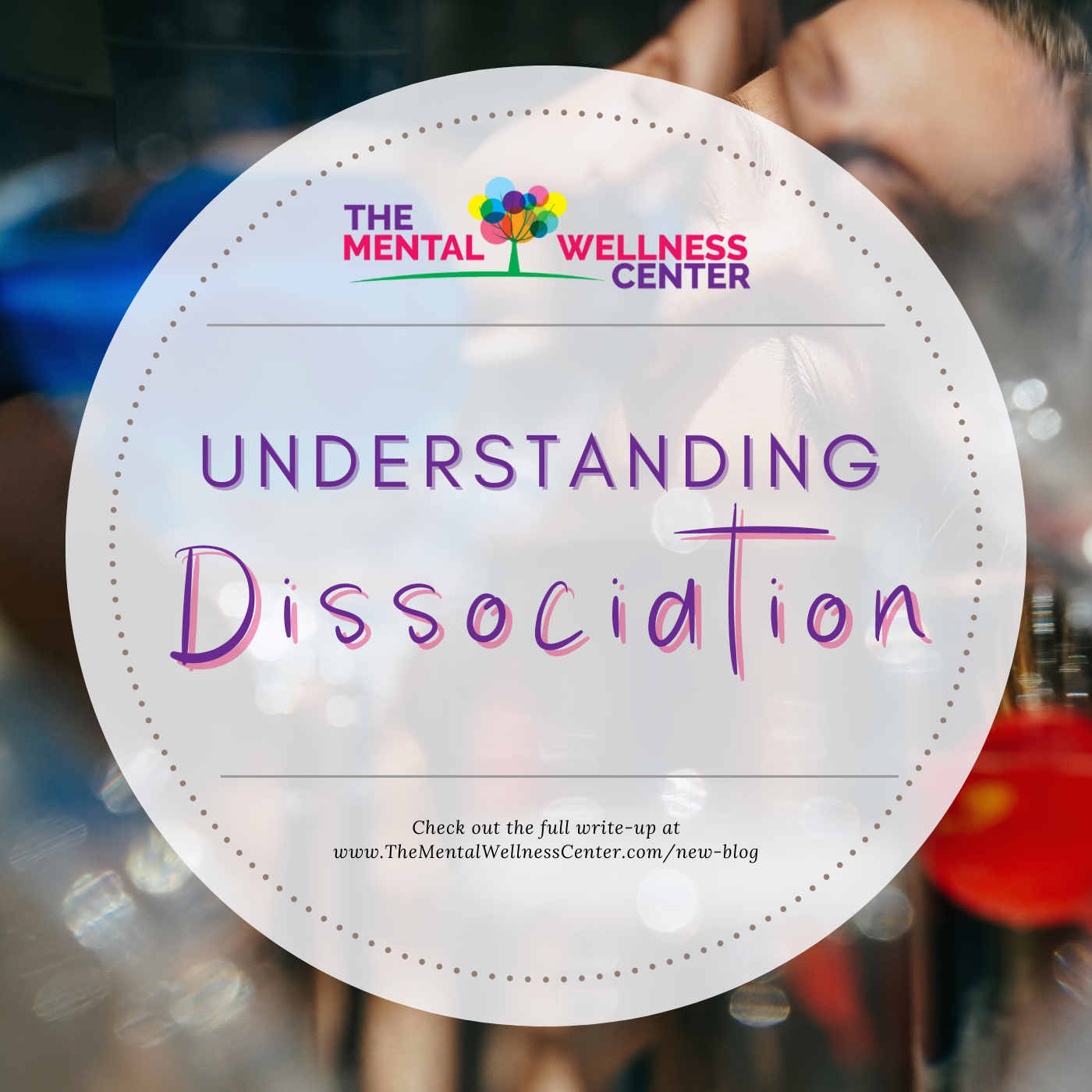
Embark on Your Journey to Inner Peace:
Learn From Experienced Therapists as They Share Empowering Strategies for Mental Wellness on Our Blog

Tag You’re It: The Importance of Play for Adults
Play is often seen as just for kids, but it brings important benefits for adults too. Engaging in play, from sports leagues to role-playing games, enhances social, emotional, and mental well-being. Role-playing games, for example, allow people to safely explore new ways of interacting, try on different personas, and develop confidence—much like the "act as if" technique used in therapy. While society may view play as childish, adults who embrace it find greater fulfillment, resilience, and social connection. For those interested, Therapeutic Tabletop Role-Playing Game groups will soon be available, offering a safe space to explore the power of play for personal growth.

Role-Playing Games and Therapy
Role-playing games (RPGs), often associated with popular culture like Stranger Things or Dungeons & Dragons, have gained recognition for their mental health benefits. RPGs, especially tabletop role-playing games (TTRPGs), encourage cognitive development, problem-solving, and cooperation. Therapeutically, they can relieve stress, improve mood, and boost self-esteem by allowing players to achieve goals within the game. Additionally, TTRPGs foster social skills through collaboration among players, offering a safe space for exploring different aspects of oneself. By separating the player from the character, TTRPGs enable participants to engage with difficult emotions and experiences in a non-threatening way.

Identifying Your Support Systems
A support system includes the people in your life who offer emotional and practical support, such as family, friends, and colleagues. Recognizing and understanding the roles of these individuals is essential for your well-being, as it helps you identify whom to turn to during challenging times. Evaluating the strength of these relationships ensures that you maintain healthy boundaries and don’t overwhelm anyone. If you lack a support system, begin by identifying your needs and reaching out to those around you or consider working with a therapist to help build connections that suit your requirements.

Decoding Insurance Coverage for Relationship Therapy: What’s Up?
The quality of our relationships directly impacts our mental health, and while improving relationships often enhances mental well-being, better mental health doesn't always improve relationships. Despite evidence showing the benefits of relationship counseling, insurance rarely covers it. Therapists typically have to bill under individual or family therapy codes, meaning only one person is considered the patient. However, relationship therapists see the relationship itself as the "patient," so billing insurance would be unethical and potentially fraudulent. This leads many therapists to offer self-pay services like 90-minute sessions or relationship intensives, allowing for deeper work. While this situation feels unfair, the investment in relationship therapy can be invaluable.

Understanding Dissociation
Dissociation, a natural response to stress, involves disconnecting from the present moment and can range from mild daydreaming to severe forms like depersonalization (feeling detached from oneself) and derealization (feeling disconnected from surroundings). While mild dissociation is common, more intense cases may need coping tools like grounding techniques, meditation, or EMDR therapy. For those struggling with dissociation in daily life, an EMDR intensive might offer help.

Introduction to Sarah Hickman, MSW Intern
I’m so excited to share this interview with each of you. Today, we are going to be exploring my interview with Sarah Hickman, MSW Intern. I just know you are going to be as fond of her as I am.

Gender Dysphoria and Transgender Discussions
Recent discussions about gender dysphoria and transgender identity have sparked confusion and fear in communities, often fueled by misleading statistics. This piece shares a personal journey through gender dysphoria, emphasizing the struggles of fitting into societal norms and the transformative power of acceptance. It addresses misconceptions about detransition rates and the dangers of conversion therapy, advocating for compassion and gender-affirming care. Ultimately, it calls for recognizing and embracing diverse identities as essential to our shared humanity.

Building Resilience in Children: Strategies for Parents and Caregivers
Resilience is the ability to recover from difficulties and adapt to challenges, crucial for a child's emotional and mental well-being. It helps children bounce back from setbacks, boosts their self-esteem, and equips them to handle future challenges. To foster resilience, parents can maintain a stable routine, encourage social connections, involve children in helping others, teach self-care, guide them toward achievable goals, and help them accept change. Building resilience is a personal journey, and parents play a key role in supporting their child's development.

Introduction to Graceanne Dodd, MSW Intern
I can’t deny that I really valued being able to engage in this interview with Graceanne Dodd, MSW intern. And it’s not just because she is attending my alma mater! She’s a really genuine and sincere person. Give this blog a read through and consider scheduling an appointment with her!

The Power of Play: How Fun Activities Boost Child Mental Health
Play is not just fun—it’s essential for a child's cognitive development, emotional well-being, and social skills. From physical activities to pretend play, these experiences enhance brain function, improve executive functioning, and promote skills like planning, organizing, and emotional regulation. Play therapy, used in counseling, helps children express themselves, manage emotions, and develop social skills in a safe and supportive environment. At The Mental Wellness Center, our team of skilled clinicians is ready to support your child’s growth through play therapy.

Fostering Emotional Intelligence in Children and Teens
Emotional intelligence is crucial for effective daily functioning and healthy relationships, and parents play a key role in helping their children develop this skill. To foster emotional intelligence in children and teens, parents should model emotional awareness and regulation, encourage open communication, teach empathy and perspective-taking, and provide opportunities for problem-solving. By demonstrating these behaviors and guiding their children through emotional challenges, parents can help their kids become emotionally intelligent and resilient individuals. If parents struggle with emotional intelligence themselves, resources are available to help them improve.

Bids for Connection in Relationships
Maintaining connection in long-term relationships can be challenging as daily routines take over. To sustain intimacy, it's important to recognize and respond to "bids for connection"—small gestures that invite closeness. Responding positively to these bids strengthens your relationship, while dismissing them can create distance. Couples counseling can help if you're struggling to connect.

Mindfulness for Minors: Introducing Meditation to Children and Teens
In today's fast-paced world, teenagers are under immense pressure to juggle school, work, extracurricular activities, and more, often leading to overwhelming stress. As a therapist, I've seen how these unrealistic expectations can negatively impact their mental health. To help manage this stress, mindfulness and meditation are key practices. Mindfulness involves being present in the moment, while meditation focuses on calming the mind. Simple strategies like pausing before reacting, checking in with yourself, and deep breathing can make a significant difference. Incorporating these practices into daily life can improve mental clarity, reduce anxiety, and foster overall well-being.

Perpetual Conflict in Relationships
The Oxford American Dictionary defines love as “an intense feeling of deep affection” or “a great interest or pleasure in something or someone.” While romantic relationships often start with love, combining individuals with different values and backgrounds can be challenging. Unlike the neatly resolved conflicts in movies, real-life relationships face "solvable problems" and "perpetual problems." According to the Gottman Institute, 69% of relationship issues are perpetual, stemming from fundamental differences in values or personality. Managing these requires understanding and honoring each other's needs through open communication and compromise. Couples counseling can also help navigate these challenges.

The Sanctuary of EMDR Intensives: A Haven for Healing Minds and Bodies
Did you know we are wired to connect with others from birth? Symptoms like disconnection, scattered feelings, lost time, and detachment from experiences are all signs of trauma. Specific symptoms include intrusive thoughts, nightmares, flashbacks, avoidance, hypervigilance, irritability, sleep disturbances, emotional numbing, physical symptoms, dissociation, risk-taking behaviors, and relationship difficulties. It’s important to remember that trauma responses vary widely among individuals. If you're struggling with any of these symptoms, consider an EMDR intensive. These are concentrated, multi-hour sessions over a short period, offering a protected space for healing. EMDR intensives are particularly beneficial for those with a single traumatic episode or complex trauma histories, providing rapid results and tangible progress.
If you seek inner peace and connection, EMDR intensives might be the answer. Consult with a qualified EMDR therapist specializing in dissociation to see if this approach is right for you.

Self-Care While Living With Chronic Illness
Living with a chronic illness can be exhausting and defeating, with finding encouragement, understanding, acceptance, and empowerment often being a struggle. Approximately 60% of American adults have at least one chronic disease, and around 40% have two or more, while over 20% suffer from chronic pain. These numbers may be underreported due to complex diagnostic criteria and varying testing standards. Chronic illness symptoms include persistent pain, fatigue, depression, anxiety, and difficulty maintaining daily responsibilities. Effective self-care strategies include pain management, stress reduction, sleep hygiene, proper nutrition, physical activity, social support, mental health care, energy conservation, and alternative therapies. Compassion towards oneself and flexible expectations are crucial for thriving with a chronic illness, emphasizing the journey over the destination.

The Importance of Rupture and Repair in Relationships
Relationships often face conflicts, misunderstandings, and hurt feelings, even in the healthiest partnerships. The concept of "rupture and repair" is crucial in navigating these moments. A rupture is a significant breakdown in connection, caused by conflict, betrayal, miscommunication, and more. Effective repair involves open communication, taking responsibility, listening actively, expressing empathy, making sincere apologies, and reconnecting emotionally. The goal isn't to avoid ruptures but to repair them effectively, strengthening bonds and leading to more resilient relationships. This process applies to all types of relationships, including work, social, family, and parenting.

The Safe and Sound Protocol for ADHD/ADD
Attention-Deficit/Hyperactivity Disorder (ADHD) significantly impacts focus, impulse control, and daily activities. The Safe and Sound Protocol (SSP), a non-invasive auditory intervention, can help manage ADHD symptoms by regulating the nervous system. Based on the Polyvagal Theory, SSP uses filtered music to stimulate the vagus nerve, promoting a calm and focused state. This intervention can improve attention, emotional regulation, social engagement, and sleep quality. Initially developed for autism, SSP has shown benefits for individuals with ADHD and related conditions.

Mindful Living in Central Illinois: A Guide for Adults Seeking Balance
Mindfulness is the practice of being fully present and aware without judgment. It offers numerous benefits, including boosting serotonin and reducing cortisol, the stress hormone. This can help improve mental and physical health, such as reducing blood pressure and enhancing cardiovascular health. Mindfulness can also improve sleep, focus, and concentration. Practices like mindful meditation, focusing on breathing, emotions, and sensations, and being present during daily activities such as eating or exercising can help cultivate mindfulness. These practices help us stay grounded in the present moment and develop greater self-compassion and understanding.

Navigating Adolescence in Central Illinois: A Teen's Guide to Mental Well-being
Adolescence is a critical time for brain development and is marked by significant changes. Mental health issues like depression and anxiety are common, affecting 1 in 7 adolescents globally, yet often go untreated. Factors impacting mental health include peer pressure, social media, bullying, academic pressure, and socioeconomic concerns.
Adolescents struggling with mental health may show changes in sleep and eating habits, loss of interest in activities, isolation, academic struggles, substance use, or self-harm. Coping skills such as mindfulness, deep breathing, and engaging in hobbies can help. Adequate sleep, a healthy diet, balanced schedules, and taking breaks from social media are essential. If needed, seek professional help for persistent issues.
